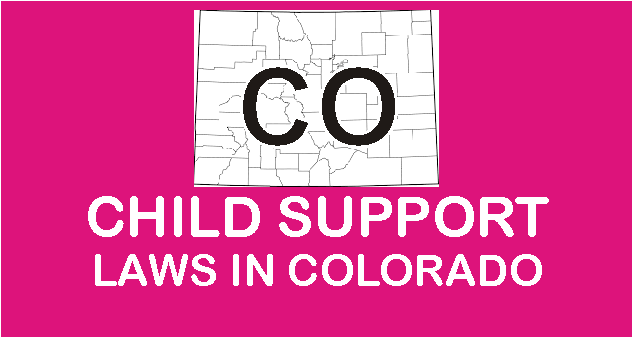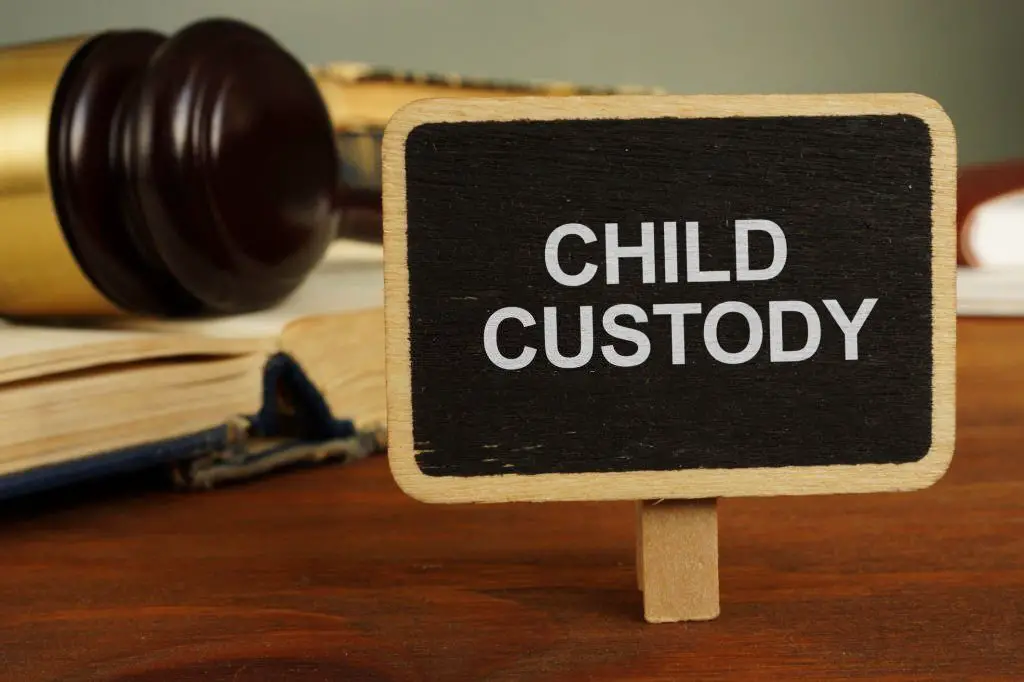
The laws governing child support in Colorado are different from that of other states. CO child support law sets how much the child maintenance should be, and the duration of such payments, plus it seeks to guide parents in exceptional cases such as deviation, support for disabled children, and retroactive support.
As you may already know, child support (or child maintenance) is a continuous monetary payment made by a spouse to another spouse, guardian, caregiver, or the state for the upkeep of children after a divorce or separation.
The person who is required to pay child support is referred to as the “obligor,” whereas the person who is eligible to receive child maintenance is referred to as the “obligee.”
What is CO Child Support Laws?
Colorado considers child support to be a child’s right, so the courts might not accept a parent-to-parent agreement to receive child support if it is significantly below what “Child Support Guidelines” recommend.
The C.R.S. 14-10-115 child support rules set by Colorado provide a presumption amount of payment. The parties’ combined income and the number of kids are the two primary variables. See C.R.S. 14-10-115(7)(b) for the Schedule of Basic Child Support Obligations (b).
Parents are required to recalculate child support every year according to changes in income, parenting time, and worksheet costs like health insurance or work-related childcare.
What does Child Support Cover in Colorado?
In Colorado, the cost of a child’s food, clothes, housing, public schooling, and health insurance is covered by child support. Although these are basic expenditures, each category also has additional specialized costs.

Child Support in CO covers a diverse set of things
When it comes to the general category of housing, for instance, child support is intended to help cover the expense of the child’s monthly rent or mortgage as well as his or her utility bills.
Some specific items can also be covered:
- The children’s weekly grocery costs;
- Lunches at schools;
- School essentials;
- Daycare expenses for working parents, if they are included on the child support spreadsheet.
Child support in CO does not include the following extraordinary costs:
- Field outings for students;
- Sports or school uniforms;
- Summer camps
- Dues for clubs or organizations; and
- The cost of sending the child to a private or special school to accommodate their unique educational demands.
However, the following expenditures are added to the fundamental child support obligation, and parents split the bill according to their respective incomes:
- fixed monthly surcharges like tutoring or private sessions.
- unforeseen costs that could arise out of nowhere, like a medical emergency.
Child Support When One Parent Lives Outside Colorado
To enforce child support orders beyond state boundaries, each state has to have the Uniform Interstate Family Support Act (UIFSA) in place. Colorado is no exception.
The UIFSA ensures that child support processes and procedures are consistent across states. When one spouse lives in another state where the Colorado courts do not have authority to adjudicate or enforce orders, UIFSA reduces these bottlenecks.
Moves made by a party to evade paying child support are not permitted to cross state lines. But before acting, a court must first establish the legal power in order to implement a child support order in another state.
How is Child Maintenance Calculated In Colorado?

Learn How Child Maintenance Calculated In Colorado
To calculate child maintenance, Colorado uses the Income Shares model. This can be done easily using the Colorado Child Support Calculator or Child Support Worksheet.
CO child support is a proportion of the parents’ total gross income that is typically 20% for one child and an extra 10% for each additional child. Depending on other circumstances, this percentage is then distributed between the parents.
Calculating each parent’s gross income, which is defined as earnings from all sources excluding child support payments, government aid, second employment, and retirement plans.
Gross Income Included in Calculating Child Maintenance
For child support calculation purposes, gross income includes:
- all wages and salary, including commissions, military pay, tips, overtime, and bonuses
- self-employment income
- interest and dividends
- net rental income from property the parent owns
Even jobless parents are likely to have some sources of income, like:
- severance pay
- unemployment benefits
- retirement benefits
- veterans’ benefits
- disability benefits, or
- workers’ compensation awards.
A CO family court judge may also allocate an income value to parents who do not currently have income-earning employment (like a second house). If a jobless parent inherits assets that can be sold, for instance, the judge may include the property’s market value as a part of such parent’s income.
Where parents willfully go unemployed or underemployed in order to avoid paying child support, judges may infer (assign) income based on what they are supposed to be earning.
Colorado Child Support Calculator or Worksheet: Which to Use?
While a child support calculator can be used to estimate child support, it is not a guarantee of the final amount of child maintenance that the judge will order. A child support worksheet is a form used by the CO courts (or negotiating spouses) to approximate the basic child support obligation of the parents.
Regardless of which approach you use, spouses can decide on a child support sum and amend the worksheet accordingly to ensure it accurately reflects their agreement. Both establish a presumption duty to pay child support.
The final decision on the amount of child support is made by the administrative law judge, administrator, or court.
How to determine Net Income for CO child support
Factors Colorado Courts Consider Before Ordering Maintenance
The following factors must be considered by the court when determining whether Colorado Family Code applies:
- The age of the child and needs; the parents’ ability to assist
- Financial resources available to the child
- For a set period of time, you have custody and access to a child.
- An increase or decrease in the obligee’s earnings or income due to the obligee’s property and assets
- Child care expenses incurred by either parent in order to keep a job
- any other children under the care of either party
- Any other children under the care of either party
- What kind of alimony or spousal maintenance is being paid or received;
- Obligor or obligee receives an automobile, house, or other benefits from his or her employer or business entity.
- The parties or the child’s special education, health-care, or other expenses
- The cost of traveling to obtain custody of and access to a child.
- Cash flow from any estate and assets, including real estate, personal property, and business property, can be positive or negative.
How to Modify Child Support Order
Start putting together evidence to show that your present circumstances are significantly changed from when you originally got divorced if you lose your job or something else happens that necessitates modifying the amount of child support you pay.
You may also ask for a modification if you are the spouse who is paying the child support. If your ex-spouse has a new job or you are in charge of more overnight stays but your spouse has not willingly offered to pay additional money, this may be necessary.
A Colorado court may consider an alteration if:
- a parent’s employment has been lost,
- migrated to another country,
- Alternatively, if the custody agreement has changed.
Steps to Modify Child Support in CO
1. To modify a child support order is CO, the Child Support Enforcement Unit in your county must receive your written request. The request needs to be signed. A Sworn Financial Statement (also known as an Income and Expense Affidavit) detailing your obligations, assets, and income must also be included with your request.
2. Include the new amount you are requesting as well as the justification for the adjustment. You must use an approved calculator to calculate the new sum. Include a worksheet that details your calculations for child support.
3. Show up in court for a hearing after giving the courts all the data and paperwork they require. The judge hearing your case will determine whether or not this occurs.
After you file your request, the judge will have 49 days to either schedule a hearing or reach a ruling without one. In the event that a hearing is required, you will have to justify the amendment to the judge. To assist you in this process, you can employ an attorney.
Steps to Collect Child Support in Colorado

Steps to Collect Child Support in Colorado
Getting a child support order in place is only half the struggle in Colorado. You’ll also have to collect the money itself. A noncustodial parent is responsible for paying the full amount of child maintenance per month as imposed by the court. Here are the steps for getting child support in CO
1. Open a Child Support Case
Complete a child support application with your local child support agency/office
2. Locate the Other Parent
To begin the child maintenance procedure in CO, the child support services (CSS) office will use the information provided by the applying parent, as well as information gathered from other sources, to try to locate the other parent.
3. Establish Parentage
It’s critical to establish a legitimate relationship with the child when the other parent has been located. The state will assist you in locating the sufficient means. Parents can choose to acknowledge their parentage voluntarily or organize a genetic screening.
4. Establish a Child Support Order
A Colorado child support order specifies how much the other parent should pay and includes details such as the payment schedule and provisions for the child’s health insurance.
5. Set Up Payment
Deducting child maintenance from a parent’s paycheck and transferring the money to the other parent or guardian is the most typical method of payment. It’s a simple way to make and track child support payments.
6. Enforce the Support Order
Your CO child support services will enforce the child support order if the noncustodial parent does not pay the full amount or does not pay any. Exposing overdue child support payments to credit bureaus, intercepting income tax refunds, and Withholding child maintenance from unemployment or worker’s compensation benefits are examples of other enforcement measures.
7. Review the Order
Three years after the order is issued, either parent can request their local child support office to revise it. They can ask for a reassessment sooner than three years if a parent’s situation has changed significantly, such as loss of employment or imprisonment.
Colorado Child Support Services Office, Number and Login Portal
Colorado Child Support Services
Office – 1575 Sherman Street, Denver, CO, United States, Colorado
Phone Number – +1 303-866-4300
Online Login Portal – childsupport.state.co.us
Email – childsupport.state.co.us
Is Medical Health Insurance Part of Child Support in Colorado?

Medical Health Insurance and Child Support in Colorado
Yes, in addition to the amount of support determined by the guidelines in Colorado, the parents will be responsible for the child’s health and dental insurance.
Whereas the noncustodial parent is presumed to provide coverage, this can readily be transferred to the other parent if it makes good sense.
For instance, suppose the custodial parent’s employer offers healthcare insurance for the dependent but the noncustodial parent does not.
Child Support and Arrears
In Colorado, failure to pay child support can result in a variety of penalties, including fines, imprisonment, interest calculated at a monthly rate of 12 percent, suspension of professional and driver’s licenses, and payment of attorneys’ expenses. The child support enforcement unit (CSEU) of the county where the child resides helps to enforce this.
In order to enforce retroactive child support payments in CO, the custodial parent should do the following:
1. File a Motion for Contempt (Punitive or remedial)
Your motion should be submitted to the district court clerk in the county where your child resides. You will also be required to attend a hearing where the court’s decision on whether you have established the other parent’s remedial and/or punitive contempt will be made.
Punitive Contempt
You can petition the court to punish the other parent for willfully avoiding paying child support by filing a motion for “punitive contempt.” In contrast to remedial contempt, you can request that the judge sentence the other parent to jail time and/or impose a fine regardless of whether they pay their child support obligations.
You must establish beyond a reasonable doubt that the other parent had the means to pay child support but chose not to do so in order for the court to condemn them to jail time or a fine.
Remedial Comrempt
If you file a request for “remedial contempt,” the court will be asked to jail the other parent until they pay all or part of the past-due child support. To establish that child support has not been paid, all you need to do is show that it has not been done on purpose by the other parent.
The goal of “remedial” contempt is to correct the issue, or in this case, to get the other parent to pay back child support, just as its name implies.
You can request both remedial and punitive contempt against a non-compliant parent in the same move. Additionally, you can request that the court order the opposing parent to cover your legal fees and any other expenses you spent while attempting to execute the child support order.
You can ask a judge to find a disobedient parent in contempt by:
- using the State of Colorado website’s forms to submit a motion for contempt on your own.
- either hiring a personal attorney to submit the motion on your behalf
- or using the Colorado Child Support Enforcement Unit (CSEU) to request enforcement services.
If you feel the arrears are being demanded wrongly, you can learn how to get child support arrears dismissed HERE.
Consequences for Failing to Pay Child Support
There are various additional orders a judge can issue to collect payment after finding a non-compliant parent in contempt of a child support judgment, including the following:
- Garnish (seize) income
- garnish property and bank accounts among other assets.
- placing liens on real estate, like a home or piece of land
- encumber the personal property with liens, such as vehicles or other valuables, and
- compel a non-paying parent to sell their belongings or real estate.
- Professional, occupational, and recreational license suspension
- The CSEU will notify credit reporting companies of the delinquent when parents are $500 or 60 days overdue on child support, which can affect credit scores.
- The Colorado Division of Motor Vehicles receives a report from CSEU when parents are at least 30 days delinquent on their child support payments. The DMV will suspend a parent’s license if they don’t make up any unpaid child support within 30 days of receiving this notice or work out a payment arrangement.
The court may also direct CSEU to seize a defaulting parent’s income from any of the sources listed below:
- IRS refunds of income taxes
- wins from the state lottery
- benefits for unemployment compensation
- winnings from gambling, and
- earnings from the Colorado state government.
How to Pay Child Maintenance in Colorado
In Colorado, parents can pay child maintenance in a variety of ways, as long as your order doesn’t state otherwise:
- by debit or credit card,
- mail,
- check
- bank transfer
- direct deposit
- income withholding, or
- auto-draft from a bank account.
How to Check your Child Support Payment History in CO

How to Check Child Support Payment History in CO
When there are disagreements between the parents and a need to confirm how much money is owed, child support payment records are extremely beneficial.
All payments made to your account are legally documented by the FSR. You can view the details by logging in or making an account here.
You can also get a copy by contacting 303-299-9123 or 1-800-374-6558 or sending an email to CDHS fsrcustomerservice@state.co.us.
When Does Child Support End in Colorado?
In contrast to many states, where non-custodial parents are required to pay child support until their child becomes 18 or graduates from high school, Colorado requires parents to do so until their child turns 19. Child support, however, lasts until the teenager graduates from high school if they are still enrolled at the time of their 19th birthday.
Pursuant to C.R.S. 14-10-115(13) the Colorado court “may order that one or both parents support a child until:
- The parents stipulate their agreement in writing.
- Because of their physical or mental limitations, the youngster cannot care for themselves.
- The student is a senior in high school.
- The young person is wed (but support may be reinstated if the marriage ends)
- The young person enlists in the military.
What is the Average Child Support Payment in CO?
Even though the amount varies depending on the number of children. the absolute minimum monthly child support requirement is a mere $50 for one child and $70 for two children.

Understanding Custody Rights of a Child in Colorado
How Does CO Child Support Work if one Parent Has no Job?
Unemployment undoubtedly qualifies as a “severe and continuing change in circumstances,” as does taking a significant wage cut or starting a new position that pays significantly less than the parent’s prior income.
Voluntary Unemployment or Underemployment
However, underemployment or unemployment brought on by the economy or other outside forces is a different matter. It’s quite another to purposely lower one’s income to avoid or lower child support obligations.
A Colorado Springs family court judge may prevent the payor from manipulating their income to lower the amount of child support they are required to pay and force them to pay their fair share if they discover that they are doing so.
The court may instead use the parent’s “potential income” in these circumstances rather than their actual, reduced income for determining child support, in accordance with C.R.S. §14-10-115(b)(I).
Is Child Support Tax Deductible in Colorado?
NO. In Colorado, child support payments are neither taxable to the recipient nor tax-deductible by the payer as stated by the IRS. Don’t include child support payments when calculating your gross income to see whether you have to file a tax return.
However, either parent may be eligible for a dependency exemption per child. If the parents can’t agree on who receives the exemption, the judge will set out the terms in a court order.
Getting a Skilled Colorado Child Support Attorney
If you are involved in a family law matter in Colorado, you may have a lot more questions than answers at this moment. You are not alone; Correspondence with members has shown that using the services of specialized child support attorneys saves a lot of hassles and most importantly, ensures you come out as a winner for you and your kid.
If you need to fight your child maintenance cause in CO with confidence, then you’ll need attorneys that are both empathetic and strong.
Luckily, we have compiled a database of these expert child support lawyers and made them available for the convenience of our members. You can reach them at the click of a button for legal advice and representation on child maintenance.
Click Here to Get our Free Colorado Alimony recommendation.
Child Support Laws in all 50 States
A - Alabama | Alaska | Arizona | Arkansas
C - California | Colorado | Connecticut
D-H - Delaware | Florida | Georgia | Hawaii
I - Idaho | Illinois | Indiana | Iowa
K-L - Kansas | Kentucky | Louisiana
M - Maine | Maryland | Massachusetts | Michigan | Minnesota | Mississippi | Missouri | Montana
N - Nebraska | Nevada | New Hampshire | New Jersey | New Mexico | New York | North Carolina | North Dakota
O - Ohio | Oklahoma | Oregon
P-S - Pennsylvania | Rhode Island | South Carolina | South Dakota
T-U - Tennessee | Texas | Utah
V-W - Vermont | Virginia | Washington DC | Washington State | West Virginia | Wisconsin | Wyoming
Colorado Resource
- Colorado Child Adoption Guidelines
- Colorado Childcare Guidelines
- Colorado Child Custody and Visitation Guidelines
- Colorado Child Support Guidelines
- Colorado Divorce Guidelines
- Colorado Marital Property Guidelines
- Colorado Spousal Support Guidelines
- How to Check Colorado Child Support Payment History





